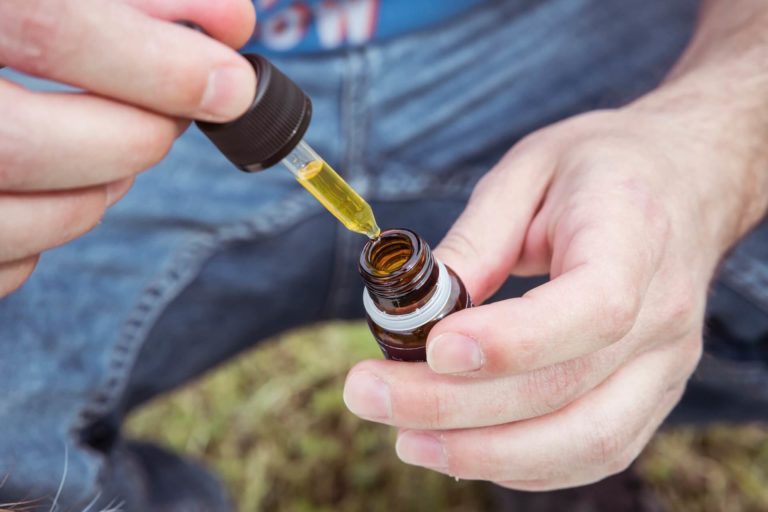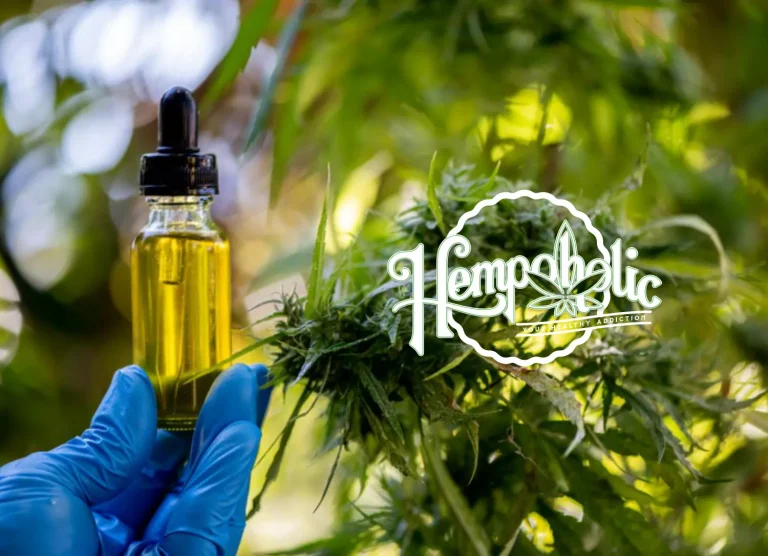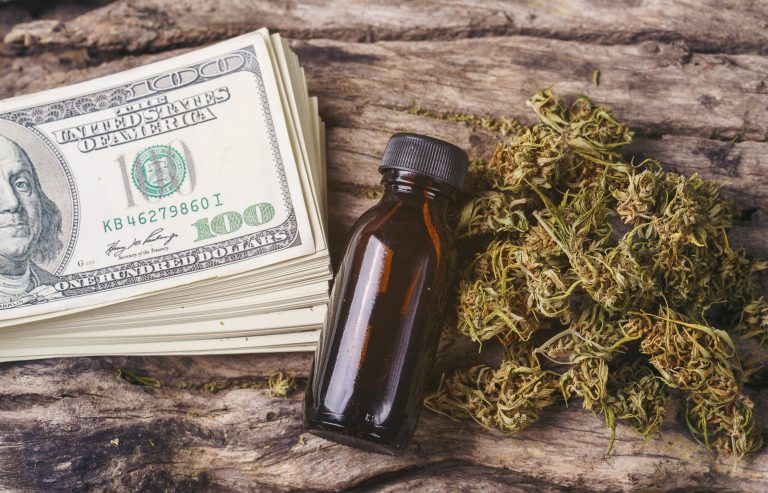Recently, The World Health Organization has classified cow and pig products as class 1 carcinogens, and all other animal products class 2 carcinogens. When discussing methods to combat illness, disease, inflammation and our top killers as a species, we must also address our lifestyle! After all, if we are actively feeding our health issues, we cannot expect herbal supplements, such as CBD and CBG, to also reverse them. We at Hempoholic do not just want you to purchase our cbd oil and consider the work done. We can support you in reaping all the benefits of this life changing plant by pairing it with a healthy lifestyle, free of class 1 and class 2 carcinogens. Afterall, aren’t you worth that kind of health and healing?
If you are not actively seeking to reverse illness and disease, do not worry! A plant-based diet can benefit all humans and will help you receive more out of your supplements. To receive the most out of your CBD and CBG products, here are some top reasons why pairing your herbal supplements with a whole food, plant-based diet will yield the best result for your health and the planet as a whole:
#1 FLEXIBLE ARTERIES
A single high fat meal has an immediate negative effect on your arteries. After 2 hours the fat concentration in blood increased from 94 +/- 55 mg/dl pre-prandial to 147 +/- 80 mg/dl and the blood flow decreased. (https://pubmed.ncbi.nlm.nih.gov/9036757/)
People who were put on a whole food plant based diet could reduce their angina attacks by 91% in just a few weeks (https://www.ornish.com/wp-content/uploads/Intensive-lifestyle- changes-for-reversal-of-coronary-heart-disease1.pdf). Angina can be a symptom of coronary artery disease. Allow your CBD and CBG supplements to fully do their job and reach for plants on your next meal!
#2 LOWERING ASTHMA
Asthma is an inflammatory disease that is increasing every year. According to the Centers for Disease Control and Prevention 10% of all children had asthma in 2009 and more children than adults had an asthma attack in 2009.
According to this study (https://pubmed.ncbi.nlm.nih.gov/17943568/), sweetened beverages and eggs were positively associated with asthma. And, on the other side, adding more fruits and vegetables to their diet lowered allergic asthma (https://onlinelibrary.wiley.com/doi/abs/10.1002/ppul.22576). This study
(https://onlinelibrary.wiley.com/doi/abs/10.1002/ppul.22576) shows that children who eat at least two servings of veggies a day are 50 percent less likely to suffer from allergic asthma.
Why not allow your body to benefit in this way and eat plants instead?
#3 BENEFIT OF HIGH FIBER INTAKE
One of the top benefits of a whole food plant-based diet is the high fiber intake. More than 90% of Americans do not eat the recommended amount of fiber (https://pubmed.ncbi.nlm.nih.gov/22649260/). This is bad news, because there is proof that fiber reduces the risk of colon cancer (https://www.bmj.com/content/343/bmj.d6617), breast cancer (https://pubmed.ncbi.nlm.nih.gov/22234738/), diabetes (https://pubmed.ncbi.nlm.nih.gov/24389767/), heart disease (https://www.bmj.com/content/347/bmj.f6879), obesity (https://www.bmj.com/content/347/bmj.f6879), and stroke (https://pubmed.ncbi.nlm.nih.gov/23539529/). It helps control cholesterol (https://www.ncbi.nlm.nih.gov/pmc/articles/PMC5394769/) and blood sugar levels (https://pubmed.ncbi.nlm.nih.gov/24180564/).
Why not prevent these health issues to begin with and fuel with plants and CBD/CBG supplements?
#4 MORE ANTIOXIDANTS
Antioxidants prevent circulation of oxidized fats in the bloodstream, decrease artery stiffness, prevent blood clots, lower blood pressure, and reduce inflammation (“How not to die” from Doctor Michael Gregor“, page 57). On average, plants contain 64 times more antioxidants than meats.
Why drag your health and energy down with bad diet choices? Fuel better so you can begin feeling better today!
#5 LOWER CHOLESTEROL
“Coronary artery disease is essentially nonexistent in cultures whose nutrition assures cholesterol levels <150 mg/dl. Patients with advanced coronary artery disease may abolish disease progression through a plant-based diet and cholesterol-lowering medication to achieve and maintain a total cholesterol <150 mg/dl.” (https://pubmed.ncbi.nlm.nih.gov/10496449/)
How much can one egg affect your cholesterol?
“In addition to their usual diet, 17 lacto-vegetarian college students consumed 400 kcal of test foods per day containing one extra-large egg for three weeks and similar isocaloric eggless foods for an additional three weeks in a randomized double-blind crossover trial.
Ingestion of the egg increased dietary cholesterol from 97 to 418 mg per day” (https://pubmed.ncbi.nlm.nih.gov/6142348/).
Note: For adults, 200 and 239 mg/dL are considered borderline high and 240 mg/dL and above is high.
What is a healthy amount of cholesterol intake?
There is no tolerable intake, because any intake above 0% of trans fats, saturated fat (found in animal products), and cholesterol will raise your LDL cholesterol concentration. (https://pubmed.ncbi.nlm.nih.gov/21521229/)
With the benefits of a plant-based diet, you can drastically bring down your cholesterol and therefore lower the risk of diseases that are associated with high cholesterol levels. Understand this, your body makes all the cholesterol you need (https://www.heart.org/en/health-topics/cholesterol/about-cholesterol#.WpyoiOjwa00).
Other research shows that cancer cells grow while cholesterol levels drop, leading to the conclusion that cancer feeds on cholesterol to grow. There is a 17% increased risk of breast cancer and 12% increased risk of colon cancer for people who had cholesterol over 240 compared to 160 (https://pubmed.ncbi.nlm.nih.gov/21422422/) and the study was performed using more than 1 million people.
#6 INSULIN RESISTANCE
The accumulation of fat inside your muscle cells interfere with the action of insulin, meaning that insulin is not able to bring the sugar out of your blood and into your muscles for use as energy (insulin resistance)( https://pubmed.ncbi.nlm.nih.gov/18460913/). Of course, high sugar makes this situation worse, but clogging your arteries with fat will inhibit your inulin from doing its job in the first place.
#7 PREVENT AND CONTROL CANCER
As this study shows (https://www.ncbi.nlm.nih.gov/pmc/articles/PMC1713264/), increasing bean intake by 70g a day cuts back the pre-cancer clusters (for colon cancer) up to 65%, a pretty significant number by simply switching your meat with beans.
“Recently IP(6) has received much attention for its role in cancer prevention and control of experimental tumor growth, progression, and metastasis. In addition, IP(6) possesses other significant benefits for human health, such as the ability to enhance immune system, prevent pathological calcification and kidney stone formation, lower elevated serum cholesterol, and reduce pathological platelet activity.”(https://pubmed.ncbi.nlm.nih.gov/17044765/).
IP(6) is found in beans and cereal.
On the other side, meat consumption was associated with an increased risk of dying from cancer and heart disease even with controlling for other factors such as smoking and exercise. (https://pubmed.ncbi.nlm.nih.gov/19307518/)
Fat from animals is significantly associated with pancreatic cancer risk (https://www.ncbi.nlm.nih.gov/pmc/articles/PMC2724851/) and there is a 72% increased risk of pancreatic cancer for every 50 grams of chicken (2 oz) daily (https://pubmed.ncbi.nlm.nih.gov/22610753/). This study was done for one decade on 447,000 people and pancreatic cancer is the fourth most common cause of cancer death worldwide.
#8 PREVENT AND REVERSE HEART DISEASE, HIGH BLOOD PRESSURE
1 in 3 Americans have high blood pressure. As diet becomes more plant based, hypertension rates drop. There is a 75% drop in hypertension from the omnivore to the vegan diet (https://www.ncbi.nlm.nih.gov/pmc/articles/PMC2677008/). This study (https://pubmed.ncbi.nlm.nih.gov/17518696/) was done on 545,000 men and women age 50- 71 years.
“Vegetarian diets confer protection against cardiovascular diseases, cardiometabolic risk factors, some cancers and total mortality. Compared to lacto-ovo-vegetarian diets, vegan diets seem to offer additional protection for obesity, hypertension, type-2 diabetes, and cardiovascular mortality.” (https://pubmed.ncbi.nlm.nih.gov/24871675/)
If you look at the 2 studies above, you could assume that the drop in hypertension is correlated with a better BMI. Let’s compare fit people. This study (https://pubmed.ncbi.nlm.nih.gov/17518696/) of athletes found a lower blood pressure in vegan athletes than meat eating athletes.
“Both systolic and diastolic BP were lower in the low-calorie low-protein vegan diet group than in BMI-matched endurance runners and Western diet group. Also consider that over half an egg a day increased heart disease risk between 6% and 40%, and 29% risk of diabetes (https://nutritionfacts.org/video/debunking-egg-industry-myths/).
Alternatively, daily consumption of 3 portions of whole-grain foods can significantly reduce cardiovascular disease risk in middle-aged people mainly through blood pressure- lowering mechanisms (https://pubmed.ncbi.nlm.nih.gov/20685951/). The result is nearly the same benefits from symptom reducing drugs without side effects
#9 REDUCE KIDNEY STONES
There is a link between higher meat intake and higher kidney stone incidents.
“A marked correspondence between the number of discharges for stones and the consumption of animal protein, particularly that derived from meat, fish and poultry”. (https://www.sciencedirect.com/science/article/abs/pii/0021968179901073)
Just eating one extra can of tuna increases the risk of forming a calcium stone in the urinary tract by 250% (https://pubmed.ncbi.nlm.nih.gov/573189/).
“The overall relative probability of forming stones, calculated from a combination of the risk factors, was markedly increased (250%) throughout the period of high animal protein ingestion.”
#10 REDUCE BREAST CANCER RISK
To reduce breast cancer risk by 60% you can implement these 3 healthy steps: Limiting alcohol, eating mostly plant based food, and maintaining normal body weight (https://pubmed.ncbi.nlm.nih.gov/23780838/). We also now know that vegans have the best BMI (https://www.ncbi.nlm.nih.gov/pmc/articles/PMC3967195/).
Another study showed that people with high meat intake and low veggie intake had 74% higher risk of breast cancer ( https://pubmed.ncbi.nlm.nih.gov/17435448/). And to debunk all the soy-myths, this study shows that soy intake not only decreases breast cancer risk (https://pubmed.ncbi.nlm.nih.gov/24453272/) but prolongs life when diagnosed with breast cancer (https://pubmed.ncbi.nlm.nih.gov/22631686/).
#11 AID DEPRESSION
40,000 Americans take their lives each year, while depression is the leading cause (https://pubmed.ncbi.nlm.nih.gov/11444765/). A dietary intervention (eating a vegan diet) improves depression, anxiety, and productivity in a multicenter, corporate setting (https://pubmed.ncbi.nlm.nih.gov/24524383/).
Another study notes that “the consumption of diets enriched with polyphenols may present the potential of dietary manipulation as a non-invasive, natural, and inexpensive therapeutic means to support a healthy brain.”( https://pubmed.ncbi.nlm.nih.gov/22334236/) Polyphenols are found in plant based food. Moreover, higher fruit and vegetable intake was significantly associated with lower odds of depression, distress, and anxiety (https://pubmed.ncbi.nlm.nih.gov/23295173/).
#12 BOOST YOUR IMMUNE SYSTEM
Older people who eat 5 or more servings of fruits and veggies a day (compared to less than 3) had an 82% greater protective antibody response (https://pubmed.ncbi.nlm.nih.gov/23134881/).
#13 NO MORE POOP ON YOUR KITCHEN COUNTERS
This article states (https://www.care2.com/) that “90% of pork chops, ground beef, and ground turkey, and 95 percent of chicken breasts, were contaminated with fecal bacteria.”
After preparing chicken and cleaning all surfaces with hot water and detergent the researchers found pathogenic fecal bacteria all over. Even after cleaning with bleach they could still find some contamination (https://pubmed.ncbi.nlm.nih.gov/10664978/).
And if you check out this consumer report (https://www.consumerreports.org/cro/magazine/2013/01/what-s-in-that-pork/index.htm) they found Yersinia enterocolitica in 69% of the tested pork samples. Yersinia causes illness and infects about 100,000 Americans a year, especially children. They also found 11% harbored enterococcus, which can indicate fecal contamination.
#14 STABILIZE BLOOD SUGAR
More than 20 million in the US are diagnosed with diabetes, which has tripled since 1990 (https://www.statcrunch.com/app/index.php?dataid=1753519). 132,000 children and adolescents younger than age 18 years suffer from it and an estimated 33.9% of U.S. adults aged 18 years or older had prediabetes in 2015. In 2014, a total of 52,159 people developed end-stage renal disease with diabetes as the primary cause. The total direct and indirect estimated cost of diagnosed diabetes in the United States in 2012 was $245 billion. There are 750,000 deaths a year (https://www.cdc.gov/nchs/data/nvsr/nvsr64/nvsr64_02.pdf).
Okay now, here is the good news! As diet becomes more plant based, diabetes and hypertension rates drop (diabetes rate by 78%) (https://www.ncbi.nlm.nih.gov/pmc/articles/PMC2677008/). Also note that insulin resistance is the most common cause of type 2 diabetes and is discussed above.
#15 DIET AND WEIGHT LOSS SUCCESS
“In conclusion, results concerning body weight, nutritional intake, nutritional quality and quantity are in line with the literature on restricted and prudent diets versus unrestricted omnivorous diets. The use of indexing systems, estimating the overall diet quality based on different aspects of healthful dietary models (be it the US Dietary Guidelines for Americans or the compliance to the Mediterranean Diet) indicated consistently the vegan diet as the most healthy one.” (https://www.ncbi.nlm.nih.gov/pmc/articles/PMC3967195/)
This reflects the fact that vegans have the best BMI compared to vegetarian, semi- vegetarian, pesco-vegetarian and omnivores (https://www.ncbi.nlm.nih.gov/pmc/articles/PMC3967195/). Carbohydrates have less calories per gram than fat, therefore you can eat more (or eat the same volume with less calories). Also, plant-based food contains more water and more fiber, keeping you full and satisfied longer. Most people who go on a whole food plant-based diet do not have to count calories and naturally lose unnecessary fat.
#16 REDUCE STROKE RISK AND MIGRAINES
The benefit of a whole food plant-based diet is the high consumption of fiber. Eating 25 g of soluble fiber (beans, oats, nuts) and 47g in insoluble (brown rice, whole wheat) will minimize your stroke risk (https://pubmed.ncbi.nlm.nih.gov/23539529/). And another study shows that subjects on a low fat plant based diet experience less migraines and lower headache intensity.( https://www.ncbi.nlm.nih.gov/pmc/articles/PMC4227630/)
#17 INCREASE FERTILITY
If you experience infertility, imbalanced hormones, PCOS, or other reasons for no ovulation or poor egg quality, insulin resistance can be the cause (https://natural-fertility- prescription.com/cant-get-pregnant-vegan-diet/). Check above to read the health benefits of a whole food plant-based diet and insulin resistance.
“Animal products predispose your body to acidity. An acidic body makes a perfect feeding and breeding ground for bacteria and other pathogens. This in turn increases your immune activity and saps available energy from your reproductive system when you’re looking to get pregnant. An immune system on high alert can also harm sperm and developing embryos. Not to mention how many miscarriages can be contributed to infections.”( https://natural-fertility-prescription.com/cant-get-pregnant-vegan-diet/)
Now this study is pretty significant: “Furthermore, consuming 5% of total energy intake as vegetable protein rather than as animal protein was associated with a more than 50% lower risk of ovulatory infertility (P =.007) […] Consuming 5% of total energy intake as animal protein instead of as carbohydrates was associated with 19% greater risk of ovulatory infertility (p = 0.03). In contrast, consuming 5% of energy as vegetable protein rather than as carbohydrates was associated with a 43% lower risk of ovulatory infertility (p = 0.05). Furthermore, consuming 5% of energy as vegetable protein as opposed to as animal protein was associated with a more than 50% lower risk of ovulatory infertility (RR [95% CI; p] = 0.48 [0.28 – 0.81; 0.007]).”( https://pubmed.ncbi.nlm.nih.gov/18226626/)
#18 PROTECT THE ENVIRONMENT
It takes more than 2,400 gallons of water to produce one pound of meat and only 25 gallons for one pound of wheat. And you can also save more water by not eating that one steak than by not showering for over 6 months (https://www.peta.org/videos/meat-wastes-water/). Crazy, huh?
Here are more facts and why a plant-based diet is so beneficial for the environment. If you would like to see the associated study and evidence please head over here (https://www.cowspiracy.com/facts/).
- Animal agriculture is responsible for 18 percent of greenhouse gas emissions, more than the combined exhaust from all transportation.
- Livestock and their byproducts account for at least 32,000 million tons of carbon dioxide (CO2) per year, or 51% of all worldwide greenhouse gas emissions.
- Growing feed crops for livestock consumes 56% of water in the US
- 477 gallons of water are required to produce 1lb. of eggs; almost 900 gallons of water are needed for 1lb. of cheese.
- 1,000 gallons of water are required to produce 1 gallon of milk.
- 5% of water consumed in the US is by private homes. 55% of water consumed in the US is for animal agriculture.
- Livestock covers 45% of the earth’s total land.
- Every minute, 7 million pounds of excrement are produced by animals raised for food in the US.
- A farm with 2,500 dairy cows produces the same amount of waste as a city of 411,000 people.
- 130 times more animal waste than human waste is produced in the US – 1.4 billion tons from the meat industry annually. 5 tons of animal waste is produced per person in the US.
- 3/4 of the world’s fisheries are exploited or depleted.
- We could see fishless oceans by 2048.
- Scientists estimate as many as 650,000 whales, dolphins and seals are killed every year by fishing vessels.
- Animal agriculture is responsible for up to 91% of Amazon destruction.
- 1-2 acres of rainforest are cleared every second.
- Each day, a person who eats a vegan diet saves 1,100 gallons of water, 45 pounds of grain, 30 sq ft of forested land, 20 lbs CO2 equivalent, and one animal’s life.
- A person who follows a vegan diet produces the equivalent of 50% less carbon dioxide, uses 1/11th oil, 1/13th water, and 1/18th land compared to a meat-lover for their food.
- 1.5 acres can produce 37,000 pounds of plant-based food.
- 1.5 acres can produce 375 pounds of beef.
- Land required to feed 1 person for 1 year: Vegan: 1/6th acre, Vegetarian: 3x as much as a vegan, Meat Eater: 18x as much as a vegan.
- 80% of antibiotic sold in the US are for livestock.
#19 SAVE YOUR WALLET
In any diet you can find budget friendly versions. A can of beans is cheaper than meat and if you buy seasonal produce you can get away with a low grocery bill. You can make a whole food plant-based diet more frugal by not buying “luxury” items. Either way you also won’t go out as much which will not only be better for your health but definitely will save you tons of money.
#20 AID ACNE AND ECZEMA
More than 85% of teenagers suffer from acne ( https://pubmed.ncbi.nlm.nih.gov/21335995/), and today more and more adults suffer from adult acne. Researchers found a link between insulin resistance and hormonal acne.
“Since the typical Western diet is more of a high-glycemic diet that often causes insulin resistance, it could potentiate a change in sebum production and therefore inflammation and acne.” ( https://www.ncbi.nlm.nih.gov/pmc/articles/PMC2836431/)
In the same study, researchers concluded that there is a link between drinking cow’s milk and acne due to the hormones that are naturally in cow’s milk and insulin-like growth factor-I. These hormones are produced to feed a calf.
Children are given cows’ milk in their early years of life and there is evidence that cows’ milk and eggs can be the cause of skin irritation like eczema:
“Eighty-seven children (81%) showed reactions to at least one food. Early skin reactions were mainly caused by egg and cow’s milk, with wheat and soya producing a small number of reactions.” (https://www.ncbi.nlm.nih.gov/books/NBK49357/)
Enjoying a whole food plant-based diet will not only cut out the triggers for acne and eczema, it will also heal your gut and skin due to the increased intake of fruits, vegetables, and fiber.









you are truly a excellent webmaster. The website loading velocity is incredible. It kind of feels that you are doing any unique trick. Furthermore, The contents are masterwork. you have done a excellent activity in this subject!
#be#jk3#jk#jk#JK##
купить виртуальный номер США